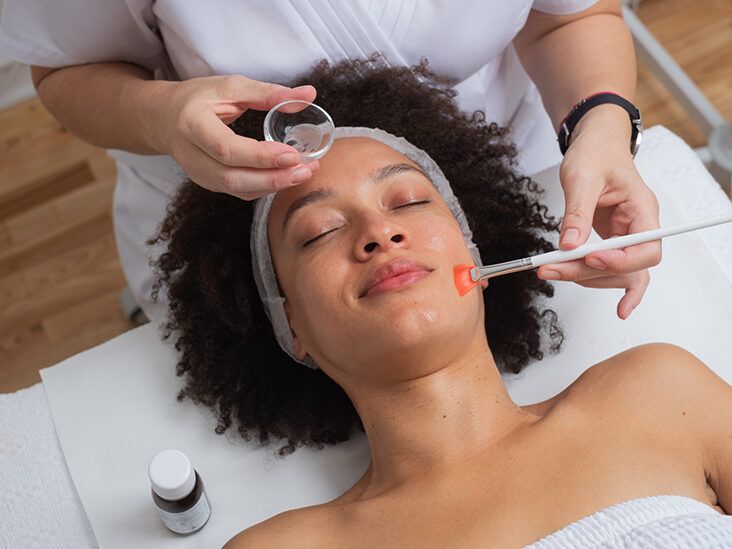Cold peels vs chemical peels: which is better?
Tired of harsh peels that leave your skin irritated? Try Cold Peel in Dubai for smooth, even-toned skin without excessive redness or downtime.
In the quest for flawless, radiant skin, exfoliating treatments like peels have become popular go-to solutions. Among the various options available, cold peels and traditional chemical peels stand out as effective ways to rejuvenate and brighten skin. Particularly with the rise of Cold Peels in Dubai, many skincare enthusiasts are curious about how these two treatments compare and which might be the better choice for their skin. This article will break down the differences, benefits, and potential drawbacks of cold peels versus chemical peels to help you decide which option suits your skincare needs best.
What Are Chemical Peels?
Chemical peels are exfoliating treatments that use acids to remove the outermost layer of dead skin cells. Depending on their strength, chemical peels can range from superficial to deep, targeting issues like acne scars, pigmentation, fine lines, and uneven texture. Traditional chemical peels typically use acids like glycolic acid, salicylic acid, or trichloroacetic acid (TCA) at various concentrations. These peels work by creating a controlled injury to the skin, which stimulates regeneration and collagen production, resulting in smoother, brighter skin.

What Are Cold Peels?
Cold peels are a newer, gentler variation of chemical peels. They use mild acids similar to those in chemical peels but are applied at cooler temperatures. This cooling effect helps soothe the skin during the process, reducing irritation and inflammation commonly associated with traditional peels. Cold peels typically utilize ingredients like lactic acid, glycolic acid, and salicylic acid in lower concentrations, combined with a cooling application method that makes them ideal for sensitive skin or those looking for effective exfoliation without the downtime.
Key Differences Between Cold Peels and Chemical Peels
Intensity and Skin Sensitivity
One of the biggest differences lies in the intensity of the treatment. Traditional chemical peels, especially medium and deep peels, can cause redness, peeling, and sensitivity post-treatment. They often require downtime for recovery and careful aftercare. Cold peels, on the other hand, are milder and cause minimal irritation. The cooling application soothes the skin, making them more suitable for sensitive or reactive skin types and those who prefer little to no downtime.
Treatment Goals and Results
Chemical peels are highly effective for treating severe skin concerns such as deep wrinkles, significant hyperpigmentation, and acne scars. Because of their potency, they can produce dramatic improvements in skin texture and tone in fewer sessions. Cold peels are excellent for maintaining skin health, brightening dull skin, and addressing mild concerns like uneven tone, minor pigmentation, and fine lines. They provide gradual, natural-looking improvements and are great for regular skin maintenance.
Benefits of Cold Peels Over Chemical Peels
Gentler on Sensitive Skin
Because cold peels are formulated to minimize irritation and inflammation, they are more compatible with sensitive skin types. The cooling effect not only soothes the skin but also reduces the risk of post-treatment redness and discomfort.
Minimal Downtime
Cold peels offer noticeable skin improvements without the downtime typical of stronger chemical peels. This convenience makes cold peels an appealing option for those with hectic schedules or events coming up.
Hydration and Soothing Ingredients
Cold peels often contain hydrating components like lactic acid, which exfoliates while attracting moisture to the skin. This dual action supports skin barrier health, unlike some traditional chemical peels that may leave the skin dry and flaky.
When Should You Choose Traditional Chemical Peels?
If you have more pronounced skin concerns such as severe acne scarring, deep wrinkles, or stubborn pigmentation, traditional chemical peels might be a more effective option. Their stronger acids penetrate deeper into the skin, delivering powerful results in fewer sessions. However, these peels require more caution, strict aftercare, and potentially more recovery time, making them better suited for those willing to commit to the process.

Why Cold Peels Are Gaining Popularity
Dubai’s unique climate, with intense sun exposure and urban pollution, often leaves skin stressed and prone to dullness. The demand for skincare treatments that can effectively brighten skin without causing additional sensitivity or downtime has skyrocketed. Cold peels in Dubai have become popular because they cater to these specific needs — delivering gentle exfoliation, reducing inflammation, and boosting radiance with minimal recovery. This makes them perfect for maintaining glowing skin year-round, especially in a busy, sun-soaked environment.
Final Thoughts
There is no one-size-fits-all answer when it comes to choosing between Cold Peels Dubai and traditional chemical peels. Your decision should be based on your skin type, concerns, lifestyle, and tolerance for downtime. Both treatments offer valuable benefits, and sometimes combining them under expert guidance can maximize your skin’s health and glow. If you’re curious about cold peels in Dubai and want to explore the best option for your skin, starting with a gentle cold peel might be the perfect step toward radiant, refreshed skin.
What's Your Reaction?
 Like
0
Like
0
 Dislike
0
Dislike
0
 Love
0
Love
0
 Funny
0
Funny
0
 Angry
0
Angry
0
 Sad
0
Sad
0
 Wow
0
Wow
0

















































